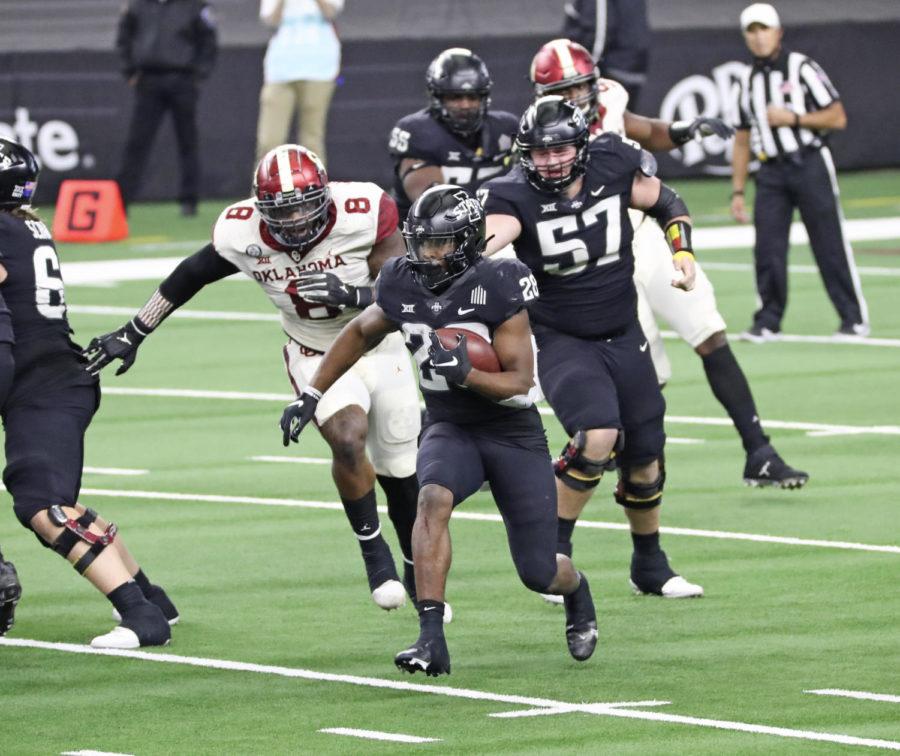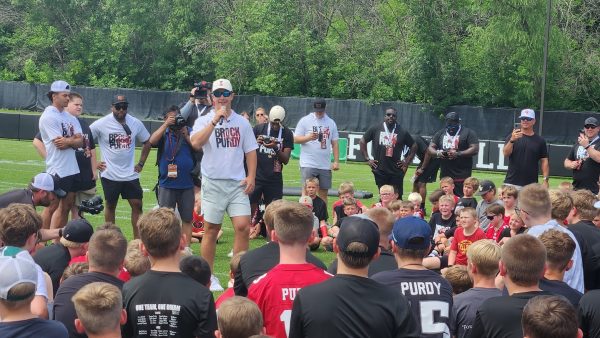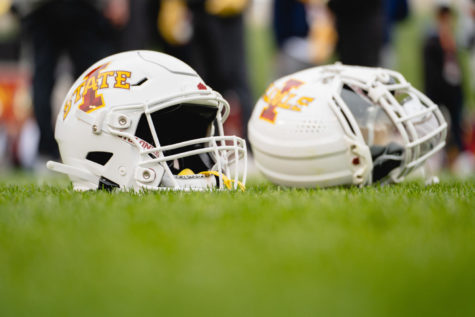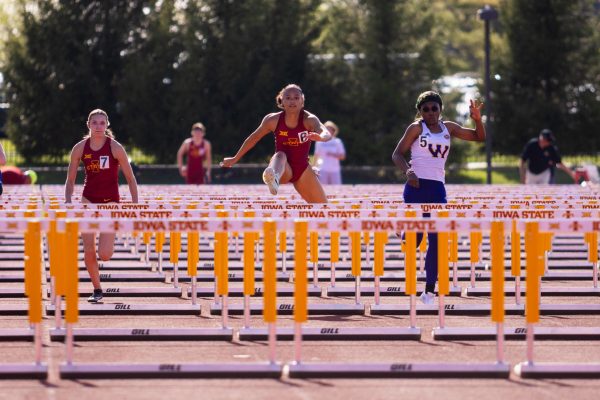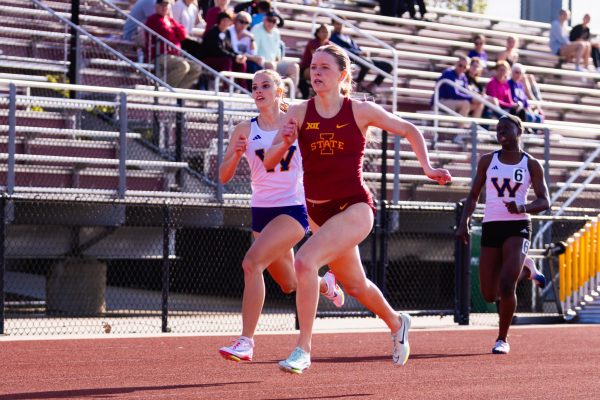Student-athletes backed by Supreme Court in NCAA case
Iowa State sophomore running back Breece Hall runs up the field in the 2020 Dr. Pepper Big 12 Football Championship on Dec. 19 at AT&T Stadium in Arlington, Texas.
June 25, 2021
On June 21, the United States Supreme Court ruled with an unanimous vote that the NCAA could not stop payments and other benefits related to education toward student-athletes.
The decision was made with the thought of paying the athletes for their actions in their sports. The athletes participating in college sports brings billions of dollars in revenue to colleges and universities. As of now, payments are strictly educational.
An example of education-only payments and benefits is that the university could give school computers to a student-athlete as a benefit. Currently, there is no price range for how much a student can receive from the school. A player could receive a school computer free of charge as a payment from the university as long as it’s deemed educational worthy.
Throughout the history, the NCAA has always been strongly against paying athletes.
A NCAA panel is scheduled to meet later this week to discuss further questions about the situation. The situation changes every day, as athletes continue to push to be paid based off of name, image and likeness.
With a lot of uncertainty around the situation, the NCAA is looking at a tough stretch ahead. Because of the billions of dollars going out for TV deals and other advertisements, many student-athletes believe it’s their turn to be paid.

